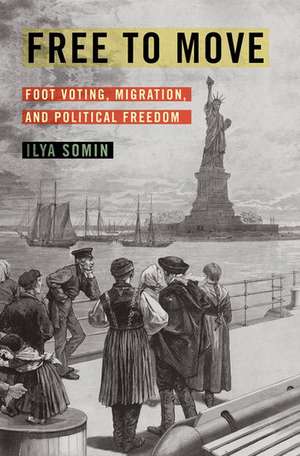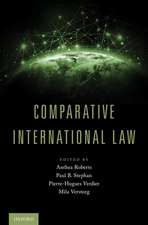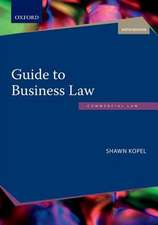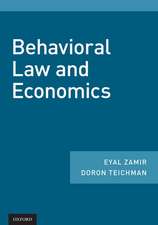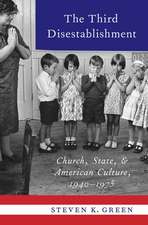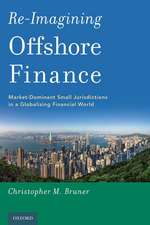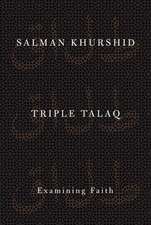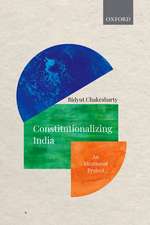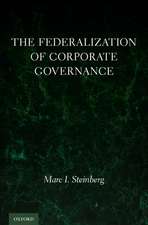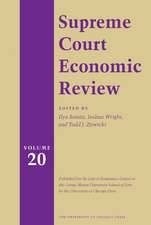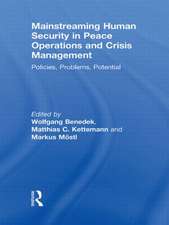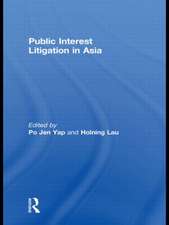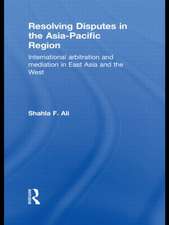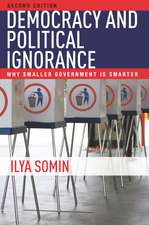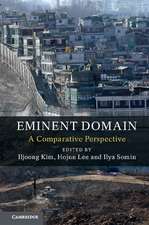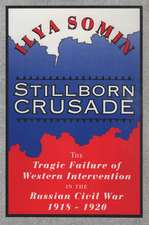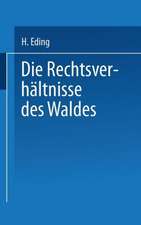Free to Move: Foot Voting, Migration, and Political Freedom
Autor Ilya Sominen Limba Engleză Hardback – 22 iun 2020
| Toate formatele și edițiile | Preț | Express |
|---|---|---|
| Paperback (1) | 151.77 lei 10-16 zile | |
| Oxford University Press – 30 mai 2022 | 151.77 lei 10-16 zile | |
| Hardback (1) | 182.77 lei 10-16 zile | |
| Oxford University Press – 22 iun 2020 | 182.77 lei 10-16 zile |
Preț: 182.77 lei
Preț vechi: 209.23 lei
-13% Nou
Puncte Express: 274
Preț estimativ în valută:
34.98€ • 38.01$ • 29.41£
34.98€ • 38.01$ • 29.41£
Carte disponibilă
Livrare economică 20-26 martie
Preluare comenzi: 021 569.72.76
Specificații
ISBN-13: 9780190054588
ISBN-10: 0190054581
Pagini: 272
Dimensiuni: 231 x 160 x 28 mm
Greutate: 0.55 kg
Editura: Oxford University Press
Colecția OUP USA
Locul publicării:New York, United States
ISBN-10: 0190054581
Pagini: 272
Dimensiuni: 231 x 160 x 28 mm
Greutate: 0.55 kg
Editura: Oxford University Press
Colecția OUP USA
Locul publicării:New York, United States
Recenzii
Free to Move shows that foot voting works better than we think, is more common than we think, and that there are many opportunities to improve political freedom by encouraging foot voting.... Chapter 5.... convincingly rejects both individualistic and communitarian arguments that self-determination can justify the exclusion of people. It offers as clear and convincing a rejection of discrimination based on parentage and place of birth as this author has ever seen... One of the outstanding features of the book is that it is robust to criticism. The reason is that Somin deals with potential critiques in a fair way. There are no straw person arguments.
A powerful book.
If Jason Brennan's Against Democracy met Bryan Caplan's Open Borders, the result would be Ilya Somin's great book from last year[2020]: Free to Move: Foot Voting, Migration, and Political Freedom. In a dense 186-page book Somin does what these two great scholars did separately over hundreds of pages: undermining voting as the most effectful participation in civic life and showing that arguments against foreigners coming to our shores don't hold water.
Ilya Somin's book is terrific.
Ilya Somin gives the reader a theory of Federalism writ (internationally) large: A great book.
Immigration policy is the most debated and controversial issue of our time....Related to these political and policy developments is the perceived partisan sorting of voters into different geographic regions, the rise of.... identity politics, and a general sense of deepening political polarization.... Ilya Somin deftly combines these issues into one forceful thesis in his new book, Free to Move: Foot Voting, Migration, and Political Freedom. There are many new books about immigration, but Somin's is the only one that argues that the ability to exit a political jurisdiction and enter another... is the cheapest and best way to improve individual political freedom.... I've read many of Somin's other books and I recommend them all, but if you only have time to read one work by this prolific scholar to understand much of his thinking on current policy issues, Free to Move is the book for you.
[I] don't agree with some points, but a lot of really smart and clear arguments here, and some particularly great ripostes to common anti-migration positions.
Somin offers a compelling and ingenious justification for free global movement ... The book's combination of rigorous thought and engaging argument makes "Free to Move" a must-read for those interested in the future of immigration law and policy.
It is the best book on geographic mobility and exit that has been written to date, and... I am happy to recommend it heartily.
In this excellent book, Somin makes a compelling case that migration — or foot voting — provides far more political power than voting. Any one voter has a trivially small chance of altering an election, but any household can choose a new state and local government by simply moving. This insight implies that devolving power to local governments will generate far more political voice than any conceivable reform to national elections. Freer international migration would empower even more people to choose their own government. Somin's case is strong, his thinking is clear, and his writing is eloquent.
Ilya Somin shows that mobility-the freedom to move from here to there-might be the most underrated underpinning of a free society. It is especially important in America, where states can compete with one another to have social policies welcoming to enterprise and liberty. Voting is important; so is what Somin calls 'foot voting.'
This eminently readable, tightly-argued, and compelling book is a model for how empirically-informed democratic theory ought to proceed. Somin shows us that in modern democracies, even when everyone has equal voice, that voice is usually close to worthless. Taking political freedom seriously requires a serious solution: foot voting. We need to ensure everyone has the right and power to move and work where they please. Exit beats voice almost every time, and the competition isn't even close. Somin deftly considers and rebuts every major objection to his view. In the end, the conclusion is inescapable: the arguments for democracy don't so much justify participatory democracy; they instead justify real freedom of movement.
Many find majority voting with ballots to be the highest guarantor of liberty. They may never have found themselves in the minority on a question vital to their well-being. Ilya Somin brilliantly and accessibly points to the central, additional role of voting with your feet - moving to a place with better policy - in protecting liberty. His book mines a deep vein of law and philosophy, but you'll find mercifully little jargon here. What you will find is a book that gives to common assumptions a taut and compelling challenge, and might leave you transformed. It offers a new way to think about international migration, but not just that. It is nothing less than a proposal for a higher form of democracy, built on the critical roles of both ballot-voting and foot-voting as guardians of freedom.
Ilya Somin has done it again, producing a compelling new book, rich with insights about democratic theory, law, and economics. Free to Move takes a familiar idea-that people should be allowed and encouraged to choose the entities that govern them by moving between jurisdictions-and shows why it is valuable and how taking it seriously as form of political choice provides a clear set of answers to some of our most pressing social problems. Those who share Somin's belief in the value of 'voting with your feet,' will see the scope of their commitment pushed by his consistency and range, and those who do not will find themselves challenged and perhaps even convinced.
A powerful book.
If Jason Brennan's Against Democracy met Bryan Caplan's Open Borders, the result would be Ilya Somin's great book from last year[2020]: Free to Move: Foot Voting, Migration, and Political Freedom. In a dense 186-page book Somin does what these two great scholars did separately over hundreds of pages: undermining voting as the most effectful participation in civic life and showing that arguments against foreigners coming to our shores don't hold water.
Ilya Somin's book is terrific.
Ilya Somin gives the reader a theory of Federalism writ (internationally) large: A great book.
Immigration policy is the most debated and controversial issue of our time....Related to these political and policy developments is the perceived partisan sorting of voters into different geographic regions, the rise of.... identity politics, and a general sense of deepening political polarization.... Ilya Somin deftly combines these issues into one forceful thesis in his new book, Free to Move: Foot Voting, Migration, and Political Freedom. There are many new books about immigration, but Somin's is the only one that argues that the ability to exit a political jurisdiction and enter another... is the cheapest and best way to improve individual political freedom.... I've read many of Somin's other books and I recommend them all, but if you only have time to read one work by this prolific scholar to understand much of his thinking on current policy issues, Free to Move is the book for you.
[I] don't agree with some points, but a lot of really smart and clear arguments here, and some particularly great ripostes to common anti-migration positions.
Somin offers a compelling and ingenious justification for free global movement ... The book's combination of rigorous thought and engaging argument makes "Free to Move" a must-read for those interested in the future of immigration law and policy.
It is the best book on geographic mobility and exit that has been written to date, and... I am happy to recommend it heartily.
In this excellent book, Somin makes a compelling case that migration — or foot voting — provides far more political power than voting. Any one voter has a trivially small chance of altering an election, but any household can choose a new state and local government by simply moving. This insight implies that devolving power to local governments will generate far more political voice than any conceivable reform to national elections. Freer international migration would empower even more people to choose their own government. Somin's case is strong, his thinking is clear, and his writing is eloquent.
Ilya Somin shows that mobility-the freedom to move from here to there-might be the most underrated underpinning of a free society. It is especially important in America, where states can compete with one another to have social policies welcoming to enterprise and liberty. Voting is important; so is what Somin calls 'foot voting.'
This eminently readable, tightly-argued, and compelling book is a model for how empirically-informed democratic theory ought to proceed. Somin shows us that in modern democracies, even when everyone has equal voice, that voice is usually close to worthless. Taking political freedom seriously requires a serious solution: foot voting. We need to ensure everyone has the right and power to move and work where they please. Exit beats voice almost every time, and the competition isn't even close. Somin deftly considers and rebuts every major objection to his view. In the end, the conclusion is inescapable: the arguments for democracy don't so much justify participatory democracy; they instead justify real freedom of movement.
Many find majority voting with ballots to be the highest guarantor of liberty. They may never have found themselves in the minority on a question vital to their well-being. Ilya Somin brilliantly and accessibly points to the central, additional role of voting with your feet - moving to a place with better policy - in protecting liberty. His book mines a deep vein of law and philosophy, but you'll find mercifully little jargon here. What you will find is a book that gives to common assumptions a taut and compelling challenge, and might leave you transformed. It offers a new way to think about international migration, but not just that. It is nothing less than a proposal for a higher form of democracy, built on the critical roles of both ballot-voting and foot-voting as guardians of freedom.
Ilya Somin has done it again, producing a compelling new book, rich with insights about democratic theory, law, and economics. Free to Move takes a familiar idea-that people should be allowed and encouraged to choose the entities that govern them by moving between jurisdictions-and shows why it is valuable and how taking it seriously as form of political choice provides a clear set of answers to some of our most pressing social problems. Those who share Somin's belief in the value of 'voting with your feet,' will see the scope of their commitment pushed by his consistency and range, and those who do not will find themselves challenged and perhaps even convinced.
Notă biografică
Ilya Somin is Professor of Law at George Mason University, author of The Grasping Hand: Kelo v. City of New London and the Limits of Eminent Domain and Democracy and Political Ignorance, and a regular contributor to the Volokh Conspiracy law and politics blog, hosted by Reason.
